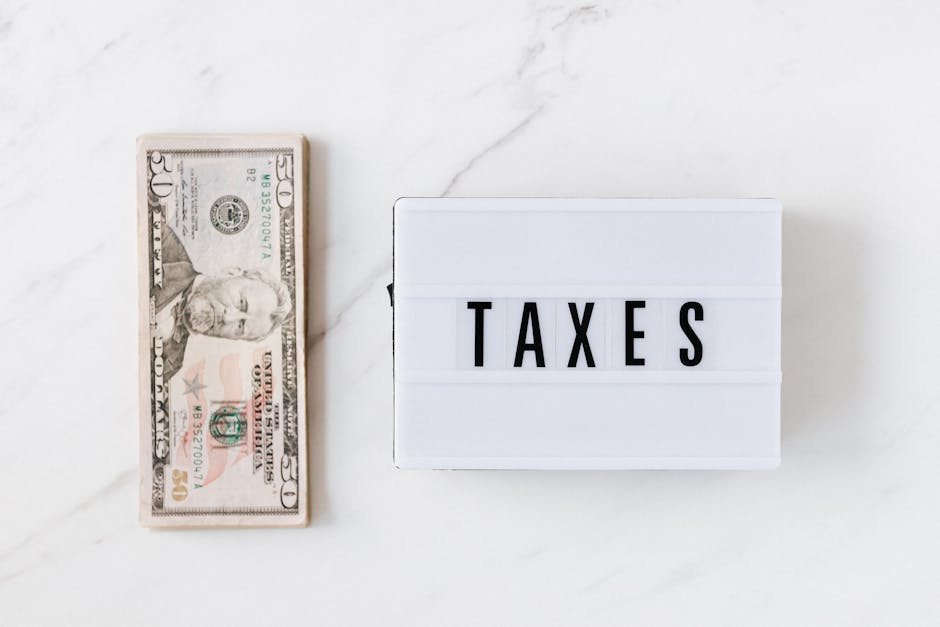Introduction to Rent Boost: Transform Your Rent into Credit Score Gold
Paying rent on time is like hitting the gym regularly. You know you’re doing good, but does it show? Most times, no one besides you notices. Enter Rent Boost. It’s like a personal trainer for your credit score, making those on-time rent payments count where it matters. Simply put, when you report your rent payments to credit bureaus, you’re turning your monthly rent into a ladder to climb up the credit score chart. Why does this matter? A strong credit score opens doors to better loan rates, easier approvals for apartments, and even lower insurance premiums. It’s all about making what you’re already doing—paying rent—work harder for you. You’re not changing your routine; you’re just getting more out of it.
How Does Rent Payment Reporting Work?
When you pay rent, it doesn’t automatically boost your credit score. For this to happen, your payments must be reported to credit bureaus. How does that work? Simple. A third-party service steps in to bridge the gap between your landlord and the bureaus. First, sign up with a rent reporting service. This could be a small monthly fee, but think of it as an investment in your financial health. Once you’re in, you pay your rent through this service. They then report these payments to credit bureaus like Equifax, Experian, and TransUnion. It’s like telling the credit world, “Hey, I’m reliable. I pay on time.” This process turns your rent into a tool, much like a credit card or loan payment, helping to build or improve your credit score. Quick tip: ensure your rent reporting service reports to all three major credit bureaus for maximum impact. Remember, not all services do this. So, signing up with one that does helps make every rent payment count toward elevating your credit score.
The Connection Between Rent Payments and Your Credit Score
Your rent payments can seriously impact your credit score, but many folks don’t know this. Think of your credit score as a game where your financial decisions either boost or drag down your score. Traditionally, rent wasn’t part of this game. However, that’s changing. When you report your rent payments to credit bureaus, these often overlooked payments suddenly become powerful players in improving your credit score.
Here’s the lowdown: credit scores are all about predicting your future financial behavior based on your past actions. By including rent in your credit report, you’re showing consistent, responsible behavior with one of your biggest monthly expenses. It’s like saying, “Hey, I pay my biggest bills on time, every time.” This can be especially beneficial for younger folks or those working to build or rebuild their credit history.
But remember, for rent payments to count, they have to be reported. Some landlords or property management companies do this automatically, but many don’t. That’s where rent reporting services come in. You sign up, pay a small fee, and they make sure your rent payments are reflected in your credit report. Simple, right?
In short, paying your rent can do more than keep a roof over your head; it can boost your credit score. So, if you’ve been punctual with your rent, why not let it work in your favor? Start reporting those payments and watch your credit score climb.
Key Benefits of Reporting Your Rent Payments
Reporting rent payments to credit bureaus can kick your credit score up a notch. Here’s the skinny: when your rent payments are noted on your credit report, it paints a fuller, more positive picture of your financial reliability. This boost comes from showing you consistently pay on time, a big win for your creditworthiness. Imagine getting credit for something you’re already doing every month. It’s like getting extra points on a test for writing your name right. Plus, think about this: a better credit score opens doors to lower interest rates on loans and credit cards. That means more money stays in your pocket, not flying out to cover high interest. Also, if you’re aiming to get a mortgage, those reported rent payments can be a golden ticket. Mortgage lenders love seeing a history of regular, timely payments. It’s proof you’re a safe bet. So, reporting rent puts you in a stronger position for future financial moves, making it easier to climb the property ladder or snag that loan with sweet terms.
Step-by-Step Guide to Setting Up Rent Reporting
First off, you need to know that rent reporting can seriously bump up your credit score if you’re paying on time. It’s surprisingly simple to get started, but not everyone knows the steps. Here’s the lowdown, plain and simple. 1. Check if your landlord reports: Not all landlords bother with reporting rent payments to credit bureaus. Ask yours straight up. If they don’t, no sweat, there’s a workaround. 2. Find a rent reporting service: Several services are out there, willing to help you for a fee. Look them up, compare what they offer, and pick one that suits you best. 3. Sign up and verify your lease: You’ll need to prove you’re actually renting the place. This usually means sending a copy of your lease agreement to the rent reporting service. 4. Connect your rent payments: The service might ask for access to your bank account to track your rent payments or have you report payments manually. It’s all about showing those on-time payments. 5. Keep paying rent on time: This part’s crucial. The whole idea falls apart if you don’t keep up with your rent payments. On-time payments show you’re reliable, boosting your credit score. 6. Monitor your credit score: After a few months, check your credit score. You should start seeing a positive impact from having your rent payments reported. Easy, right? Just a few steps and you’re on your way to making your rent work for you in a whole new way. Make sure you keep up with the payments, and you’ll be golden.
Choosing the Right Rent Reporting Service for You
Picking the best rent reporting service is crucial. You want a buddy on this journey, not just a company. First up, check if they report to all three major credit bureaus—Experian, Equifax, and TransUnion. Not all services do, and this matters. Your credit score won’t get that boost if your rent payments only show up at one place. Next, eye the costs. Fees should not drain your wallet. Some charge monthly, others a setup fee, or both. Stay sharp on what you can afford. Also, scope out how they handle late payments. Life happens. Ensure their policy won’t tank your score even before it climbs. Lastly, dive into user reviews. They’re like your guide in dark waters. If others say it’s smooth sailing, you’re likely good to go. Choose wisely. Your credit’s future is at stake.
Overcoming Common Concerns: Privacy and Security in Rent Reporting
When you start reporting your rent to credit bureaus, you might worry about your privacy and how secure your information is. It’s normal to feel this way, but let’s break it down so you can see it’s not as scary as it seems. First, the companies that handle rent reporting take your privacy seriously. They have to follow strict laws that protect your personal information. This means they can’t just share your info with anyone. They’re also using top-notch security measures to keep your data safe from hackers. Now, you might think, “What if something goes wrong?” It’s rare, but if there’s a mix-up with your rent reporting, it’s usually easy to fix. You’ll just need to contact the rent reporting service or credit bureaus and they’ll help straighten things out. To sum up, while it’s smart to think about privacy and security, the systems in place are strong. Reporting your rent can safely boost your credit score, making it easier for you in the future when you want to take out a loan or get a credit card.
Real-Life Success Stories: Boosting Credit Scores with Rent Payments
Many renters have seen their credit scores jump after they started reporting their rent payments to credit bureaus. Take, for example, Sarah from Ohio. Sarah had a credit score on the lower side, struggling to cross the 600 mark. After consulting with a financial advisor, she decided to report her monthly rent payments. Within six months, her score went up by 50 points. It was a game changer for her, enabling her to qualify for a car loan with much lower interest rates.
Then there’s Jamal from Texas. He didn’t have a bad credit score but was stuck in the mid-600s, making it tough to get favorable rates on any loan. By reporting his rent, he saw an increase of 70 points in just under a year. This improvement allowed Jamal to apply for a mortgage, something he thought would take years to qualify for.
These stories show that by taking a simple step like reporting rent payments, individuals can significantly boost their credit scores. The benefits are real – lower interest rates, better loan terms, and greater financial flexibility. It’s about being smart with the tools available to boost financial health.
Tips for Maximizing the Impact of Rent Reporting on Your Credit Score
To get the most out of rent reporting and give your credit score a healthy boost, follow these straightforward tips. First, ensure you’re paying rent on time, every time. Late payments can hurt your credit score instead of helping it. Second, use a rent reporting service that reports to all three major credit bureaus—Experian, Equifax, and TransUnion. This way, all your on-time payments have a uniform positive impact across your credit reports. Third, keep your rental history clean and dispute any inaccuracies on your credit report. Mistakes can happen, and you don’t want an error dragging your score down. Fourth, combine rent reporting with other good financial habits. This means keeping your credit card balances low, paying off debts, and not applying for new credit too often. By blending rent reporting with these practices, you amplify its positive effect on your credit score. Rent reporting can be a powerful tool in your credit-building arsenal, but it’s most effective when you play your cards right.
Conclusion: Unlocking Financial Opportunities Through Effective Rent Reporting
So, let’s wrap it up. Reporting your rent can be a game-changer in boosting your credit score. It’s like telling the world, “Hey, I’m reliable. I pay my dues on time.” And who doesn’t want to be seen as reliable, right? Nowadays, fewer people know that this simple step can unlock massive doors for their financial journey. We’ve seen how it can help, especially for folks who are building or rebuilding their credit. It’s a smart move, really. By adding your rent payments to your credit report, you’re basically beefing up your financial resume. And a stronger resume means better chances for loans, credit cards, and even lower interest rates. Remember, it’s not just about paying rent; it’s about making your rent pay you back. By taking this savvy step, you’re not just living in your home; you’re building your financial future, one rent payment at a time. So go ahead, report those payments, and watch your credit score—and your financial opportunities—soar.









